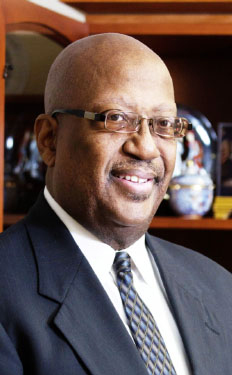
By Vernon A. Williams
The only way future generations will succeed is if African Americans at every level firmly embrace the philosophy of giving back. Black Americans confident that in the final frame of our story the cavalry will ride in to save us are sadly mistaken. Don’t wait without a plan, for government, the Supreme Court, the church, or corporate America.
If African Americans are to survive, thrive and mobilize, it will be on their own volition.
There has rarely been a time of fractionalization more pointed than we see today. The psychology of our struggle has always, in part, relied on those outside the race to empathize and yield to their better angels. We have counted on the prospect of building alliances with good people to overcome obstacles.
Often, we give far too much credit for the roles played by others in our plight. Revered as he may have been, it is common knowledge that if Abraham Lincoln could have brought peace to a war-torn nation WITHOUT “freeing the slaves,” he would have done it.
Honest Abe was a reluctant hero at best and a pragmatist guided by circumstance at worst. His goal was to provide an exit from the plantation and an end to the tyranny of an institution that split the United States down the middle. There were no grand provisions for uneducated, poor masses suddenly on their own.
Lincoln did not intend to imply that a freed slave was the equal of a white American.
This week I attended two programs that help make the larger point. One was a “pinning ceremony” for first-year students at Indiana University Bloomington.
Members of the Class of ’23 were welcomed to the campus and assured that as they matriculate through the often daunting course of higher education, that their support system would be strongly comprised of Black faculty, staff, students and alumni.
It was a ritual to assure our rising stars that their peers and elders would do all within their power to help them pursue their dream.
The second of the two programs that I attended this week centered on the legacy of the great Madame C.J. Walker, the first female self-made millionaire in the U.S. Through a collaboration with Eli Lilly, the Indiana University Foundation and IUPUI (Indiana University-Purdue University Indianapolis), a $15 million renovation of the historical Madame C.J. Walker Center and Theater is nearing completion for a 2020 reopening.
This ceremony reminded us of those Black Americans on whose shoulders we stand, and the incredible level of intellect, moral turpitude, spiritual strength, resourcefulness and courage these social pioneers embodied. Without modern conveniences, communication, transportation or capital, their genius was unprecedented.
Madame Walker died more than 100 years ago but because of her landmark namesake on Indiana Avenue, the unfathomable empire she created lives in perpetuity. She didn’t just make the money and run. She built a neighborhood, enhanced other entrepreneurs and modeled the lifestyle and commitment required for Black people to excel in a society far more antagonistic than we can even imagine.
So, examining the Walker legacy was a reiteration of the need for foundation and our recognition of her genius reveals a template for growth, perseverance, progress and success in a new millennium.
At the same time engagement with youthful students reinforces the necessity of Black America never to yield to the temptation to rest on its laurels. There are professional achievers in Chicago, Gary, Indianapolis, D.C., the A-T-L and beyond, that rival the prowess of Madam Walker. But are we sufficiently investing that capital.
A billionaire who paid off college loan debts of Morehouse College students recently turned right around a few weeks later and retired college debts of their parents. Many affluent celebrities are donating to – some under the radar – the education and well-being of African American children.
But the numbers need to increase. And the number and scope of people willing to give of their talent, time or treasure to enhance the next generation needs to be broadened and fortified. Young and middle-aged professionals, while you are undoubtedly busy on your career path, carve out time to mentor. Those at or near retirement can set up endowments or tutor or just maintain a presence in the company of fledgling generations of scholars.
This is an appeal to examine yourself. If you cannot identify how you are pouring into the lives of young people, begin examining possibilities. If you already are, see how much more you can do. The Bible speaks of the need being great but the laborers few. That is too often our reality. And if you didn’t already know, there won’t be too many Supreme Court decisions that bolster our quest as a people any time soon.
Our destiny lies in our own hands.


Be the first to comment